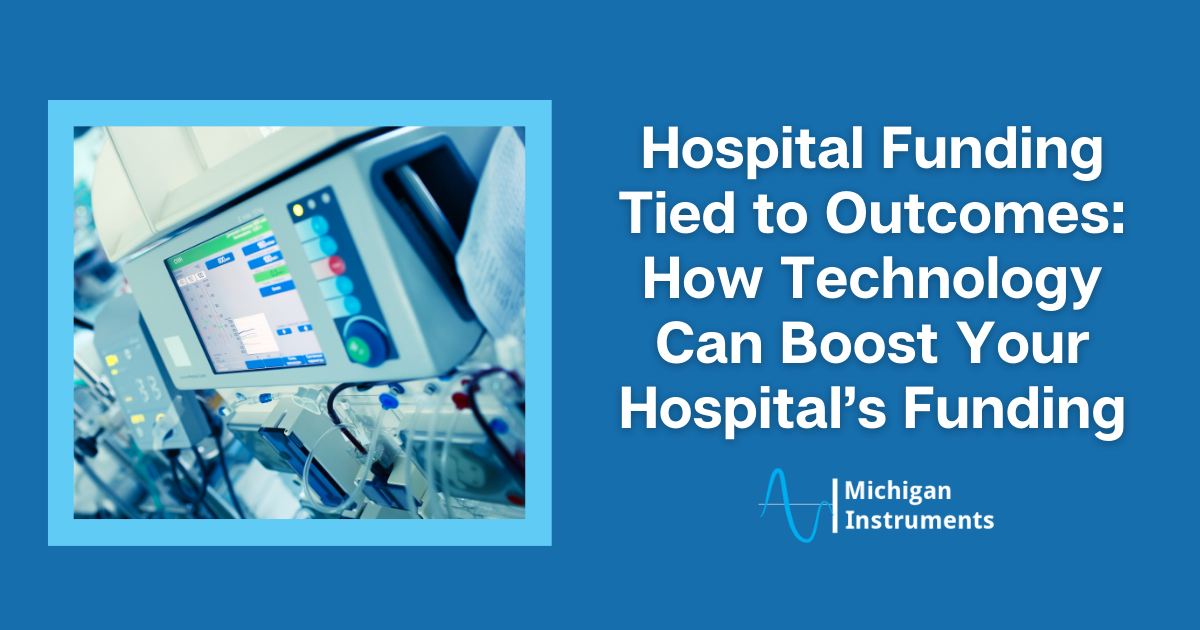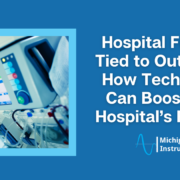
In recent years, healthcare systems around the world have been undergoing a major transformation. One of the most significant changes has been the shift from traditional fee-for-service reimbursement models to value-based care.
Under this new paradigm, hospital funding is increasingly tied to patient outcomes, quality of care, and efficiency. To succeed in this evolving landscape, hospitals are turning to smart hospital technology as a powerful ally.
In this blog, we will explore how technology can boost your hospital’s funding by improving outcomes, reducing costs, and enhancing overall healthcare delivery.
1. Enhanced Patient Engagement
Technology has revolutionized the way hospitals engage with patients. With the popularity of cell phones and the internet, patients are connected and informed now, more than ever before. Hospitals can leverage this connectivity to foster better patient engagement.
Electronic health records (EHRs) and patient portals allow patients to access their medical records, schedule appointments, and communicate with their healthcare providers in a way that is easy and more convenient than the traditional methods of the past.
This enhanced engagement can lead to better adherence to treatment plans, resulting in healthier outcomes. This can boost funding through performance-based incentives and shared savings programs.
2. Telemedicine and Remote Monitoring
Telemedicine has emerged as a game-changer for healthcare. Through video consultations and remote monitoring tools, healthcare providers can extend their reach beyond the hospital’s physical walls.
Telemedicine increases access to patient care, and results in higher patient satisfaction and improved outcomes.
Health systems that embrace telemedicine technologies are more likely to receive favorable reimbursements and financial incentives for their innovative approaches to care delivery.
3. Predictive Analytics and Machine Learning
Predictive analytics and machine learning are transforming the way hospitals manage patient populations. These technologies can identify high-risk patients and intervene early to prevent complications or readmissions.
By analyzing large datasets, hospitals can predict disease outbreaks, optimize resource allocation, and personalize treatment plans.
Improved patient risk stratification and resource allocation can lead to cost savings and improved outcomes, making hospitals more attractive to payers and investors.
4. Quality Improvement and Population Health Management
Hospitals are increasingly held accountable for patient outcomes and quality of care. To meet these demands, smart hospital technology is essential.
Population health management platforms help hospitals track and manage the health of their communities by aggregating and analyzing data from various sources.
Quality improvement initiatives can be more data-driven and efficient, resulting in better patient outcomes and higher reimbursement rates.
5. Interoperability
Interoperability is the ability of healthcare systems and software to exchange and use health information seamlessly.
The adoption of interoperable systems can reduce duplicative tests, enhance care coordination, and prevent medical errors. Improved interoperability can boost hospital funding through reduced costs and better patient outcomes.
This can also position hospitals favorably in the eyes of regulatory bodies that often incentivize the adoption of interoperable systems.
6. Data Security and Privacy
While technology can undoubtedly boost funding, it’s crucial to address the cybersecurity and privacy concerns that come with the digital transformation.
Data breaches and privacy violations can result in financial penalties and damage to a hospital’s reputation. Robust cybersecurity measures and compliance with regulations, such as HIPAA, are essential to safeguard patient data and maintain trust.
A secure hospital environment is more likely to attract patients and gain the trust of regulatory bodies and insurers.
7. Medical Technology Can Help Save Lives
In today’s healthcare landscape, smart hospital technology plays a pivotal role in both saving lives and boosting a hospital’s funding. CPR machines are no exception.
These essential tools enhance patient care, increasing the chances of survival for those in critical condition. Moreover, they improve the hospital’s reputation, attracting more patients and referrals.
By investing in state-of-the-art CPR machines, hospitals can demonstrate their commitment to patient well-being and safety, ultimately leading to higher patient satisfaction scores. This, in turn, can secure better reimbursements and grant access to more funding opportunities, ensuring the hospital remains financially resilient while providing superior care.
Michigan Instruments provides state of the art CPR devices that provide consistent external chest compression, giving your patients their best chance for survival. Our CPR chest compression machines perform effective, customized, hands-free CPR and never get tired.
They allow medical professionals to concentrate on other life-saving procedures and provide improved access to the patient, and rescuers to be more safely positioned, and less susceptible to personal injury.
Additionally, our devices are high-quality and the best value on the market today, and they afford the lowest acquisition cost in the market and a low operating cost.
Find Out Why Healthcare Facilities Around the World Choose Us
Hospitals that embrace smart hospital technology can enhance patient engagement, improve the quality of care, and optimize costs. In doing so, they position themselves to benefit from performance-based incentives, shared savings programs, and a positive reputation.
Our devices can be your first step toward improving your hospital for both your patients and your staff.
Contact us today to learn about the numerous benefits our devices can offer.




